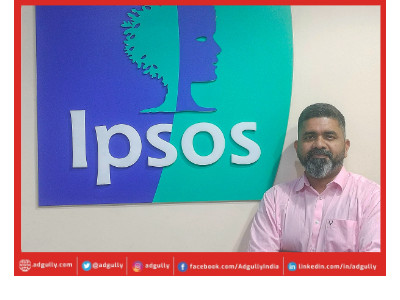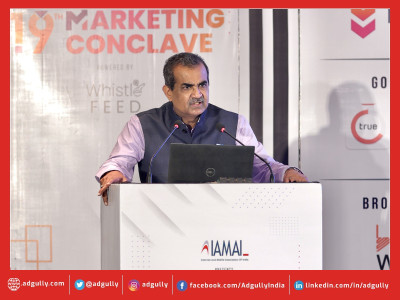Apparel, OOH Entertainment and investment in Retirement funds to be hit by concerns over inflation: Nielsen Survey
According to the survey, which polled over 29,000 Internet consumers in 52 countries in November 2010, confidence levels fell in half of the countries surveyed as widespread concern for unemployment, job creation, rising food and utility costs eradicated any expectation of sustained economic recovery. The global consumer confidence index at the end of 2010 remained unchanged from the previous quarter at 90 and finished the year two index points below the start of the year.
"India has topped the Consumer Confidence survey in all four quarters of 2010 and has also seen a steady rise in index points. This is a good sign for us as this means that the economy is fast moving out of the slowdown. But global economic conditions have made Indians wary about the future and they are exercising some restraint in their spending habits," said Justin Sargent, Managing Director-Consumer, India, The Nielsen Company.
Three out of ten Indians think that the country is in an economic recession. However the percentage of Indians who think that the country is presently in recession has gone down by three percent to 30 when compared to the last leg of the survey. Out of those who think that India is in a recession, 55 percent believe that the country will be out of recession in the next twelve months, which again indicates an overall positive consumer outlook for the economy. Globally, India ranks first as a country that believes that they will be out of the economic recession in the next twelve months.
Amongst the 52 countries that participated in the survey, 14 saw a consumer confidence index of 100 points or higher, nine of which hail from Asia Pacific This is an increase compared to 11 countries who hit the 100+ index mark one year ago.
The Nielsen Consumer Confidence Index provides a single indicator of consumer sentiment towards the current economic situation as well as intentions and expectations for the future. Levels above a baseline of 100 indicate degrees of optimism.
Optimism reigns high in India
Increasing confidence levels in the country's economy translates into optimism for Indians, at least when it comes to their job prospects in the next twelve months. Indians are globally the most optimistic on this count. Nine out of ten Indians (90%) are optimistic about their job prospects in the next twelve months. This is a percentage point lower than in the last quarter, but India tops the list of countries who think that their job prospects are excellent or good in the next twelve months. The percentage of Indians who think that their job prospects are "excellent" has gone up from 29 to 31 percent compared to the previous quarter. Nearly six out of ten Indians (59%) consider their job prospects "good" in the next twelve months. Norway (83%) and Singapore (79%) are the next most optimistic nations on job prospects in the next twelve month.
Not only job prospects, Indians are also optimistic about the state of their personal finances in the next twelve months. More than eight out of ten Indians (84%) are optimistic about their personal finances in the next twelve months, which is also the highest ranking globally. This has gone up by a percentage point compared to the third quarter of 2010. Eighteen percent Indians consider their state of personal finances "excellent" and 66 percent consider it "good" in the next twelve months. Indonesia (81%) and Norway (79%) are the second and third most optimistic nations respectively in terms of the state of their personal finances in the next twelve months.
Despite the overall economic confidence over the economy and job market, Indians tightened their purse strings slightly in the fourth quarter of 2010. Of the Indians surveyed, 56 percent believed that it was a good time to buy the things that they felt they wanted, but in the previous quarter it was higher at 59 percent.
"Global economic conditions are acting as a deterrent to the spending habits of Indians. We saw a resurgence in spends in the previous two quarters but the last quarter of 2010 shows a decline in spending intentions. Under the current scenario, marketers will have to try harder to get the consumer to reflect the confidence that they show in their job prospects and state of personal finances in their spending habits," said Sargent.
What do Indians do with their spare cash?
Indians have always put their spare cash into Savings and the priority remains the same, 65 percent Indians say they will put their spare cash into savings after meeting their essential living expenses. The percentage of Indians putting their discretionary income into savings remains the same as in the last quarter. India ranks fourth globally for a country that puts its spare cash into savings, behind Thailand (73%), Indonesia (72%), and Hong Kong (66%).
After saving, Indians like to invest their spare cash in the stock market or in mutual funds. However, in the fourth quarter of 2010, the percentage of Indians who invest in stock market related schemes has gone down by three percent to 45 compared to the last leg of the survey. India ranks third globally for a country that puts spare cash into shares and stocks, behind Hong Kong (56%) and China (51%).
There is an overall decline in Indian discretionary spends, but the highest decline is seen in Indians putting spare cash into New clothes, which has gone down eight percent to 31 compared to the last round of the survey. Another item on the spare cash list that has taken a big hit is the Out Of Home Entertainment, which has gone down by six percentage points to 23. Paying off debt/ credit cards/ loans (29%) and Retirement Funds (24%) has experienced a five point drop. India ranks third globally in putting spare cash into retirement funds, behind China and Czech Republic (both 30%).
A four percent drop is seen in the number of Indians who put their spare cash into New technology products and it has gone down to 38 percent. But still, Indians say spending on technology will be their third preference when it comes to spare cash utilization. On the global ranking India ranks second in a population that plans to spend on new technology products, China leads with 41 percent votes.
Holidays/ vacations (35%) and Home improvements/ decorating (34%), though rank fourth and fifth respectively on the spare cash utilization list, have dropped by three percent when compared to the survey in the previous quarter.
The percentage of Indians who have no spare cash has gone up by one percent to four.
"The decline in spending is a cause of worry to some extent. Indians are weighing their options against a global backdrop of a recessionary mindset, so even though they are the most confident global consumers, Indians are still wary of going out and spending," said Sargent.
Major Concerns for Indians
Over the next six months Indians are most concerned about Increasing food prices, fifteen percent Indians consider it their biggest concern and India ranks fourth globally in its concern for increasing food prices. In fact concern levels around increasing food prices have remained the same for both the third and fourth quarter. China tops in its concern over increasing food prices with 19 percent of consumers in China voting it as the biggest concern over the next six months.
Following a similar trend as in the previous quarter, Work/ life balance (12%) and Job Security (10%) are the second and third biggest concerns for Indians in the next six months.
Other concerns for Indians are Children's education and/or welfare (8%) and Parent's welfare and happiness (8% - 3rd highest globally). Children's education and/or welfare has moved up the concern list and concern over parent's welfare and happiness has increased by two percentage points. Concerns surrounding Terrorism (7% - 4th highest globally) has increased for Indians.
At 6 percent Health, Economy, and Global Warming are the next set of concerns for Indians. India ranks second in its concern for global warming. Increasing utility bills (electricity, gas, heating, etc) ' 5 percent and increasing fuel prices (4%) are some of the other concerns for Indians.
"Increasing food and fuel prices remain a big concern for Indians and has a significant bearing on their lifestyles as they try and balance rising costs by cutting down other living expenses" explains Sargent.
Saving on household expenses?
Compared to this time last year, more than seven out of ten Indians (72%) have changed their spending habits to save on household expenses; this is two percentage points higher than in the third quarter. More than half the Indians (51%) surveyed, now spend less on new clothes to cut down expenses, however the percentage of Indians who plan to cut down buying new clothes has gone down by seven percent compared to the previous quarter. 50 percent Indians try to save on gas and electricity, compared to 56 percent in the previous round who said they would cut down on gas and electricity to save on household expenses.
43 percent of the Indians surveyed say they will cut down on out of home entertainment, 41 percent on telephone expenses, 38 percent on holidays/ short breaks and 35 percent will delay upgrading technology, e.g. PC, mobiles, etc. to save on household expenses.
There is a fair amount of correlation on items that Indians have decided to cut down spending on to save on household expenses and the items that show a decline in discretionary spends, like decline in spending on new clothes, out of home entertainment, new technology products, all have taken a hit.
As per the survey, the top five activities that Indians say they will continue to cut down expenses on even after economic conditions improve are, to try and save on gas and electricity (37%), which has gone down by nine percent compared to the previous round of the survey, spend less on new clothes (22%), cut down on telephone expenses (20%), cut down on take-away meals (17%), and look for better deals on home loans, insurance, credit cards, etc (16%).
"Despite their concerns over rising prices, the amount Indians have cut down to save on household expenses has gone down, which again is indicative of a confident economy with equally confident consumers while remaining conservative as is seen from their emphasis on saving" concluded Sargent.















Share
Facebook
YouTube
Tweet
Twitter
LinkedIn